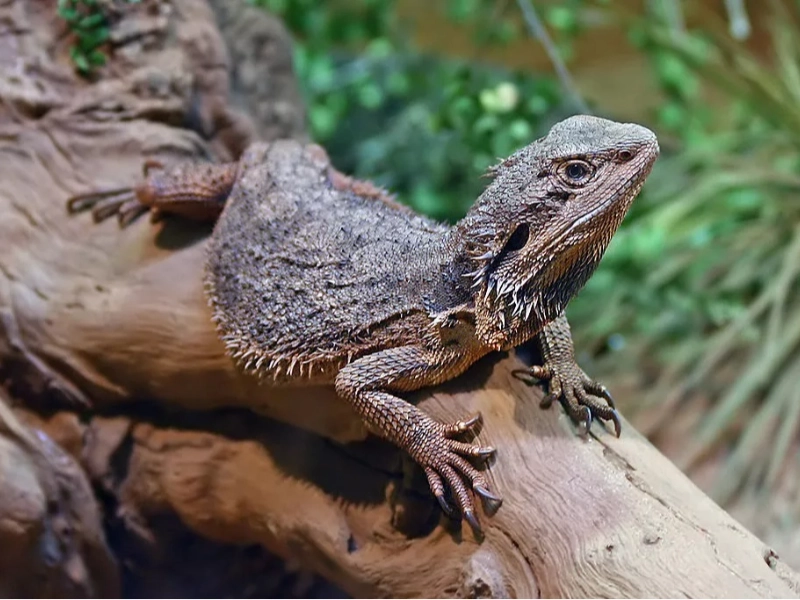Mind-Blowing Animals That Swap Sexes
9. Bearded Dragons: Climate Change and the Rise of Temperature-Dependent Sex Reversal

Native Australian lizards, bearded dragons have now become an interesting case study in the complicated interaction between climate change and reptile sex determination. Directly connected to incubation temperatures, these common pets and subjects of research have shown an amazing capacity to undergo sex reversal even in the egg. Not specific to bearded dragons, this temperature-dependent sex determination is seen in many other reptile species. But what distinguishes bearded dragons is the spectacular and progressively common occurrence of male-to-- female sex reversal in reaction to rising global temperatures, providing a striking example of how directly climate change may affect the reproductive biology of animals.
In bearded dragons, sex reversal is the process whereby genetically male (with ZZ sex chromosome) eggs are exposed to warmer temperatures during a pivotal stage of incubation, akin to XY in mammals. Under these circumstances, the embryonic growth veers unexpectedly and produces genetically male but phenotypically female individuals. Though this phrase more precisely relates to human gender identity, these sex-reversed dragons—sometimes referred to as "non-binary" in popular science literature—have female physical traits and reproductive organs despite their male genetic composition. This amazing change emphasises how flexible sexual development is in reptiles and shows how environmental elements could overcome genetic inclinations to define a person's sex.
The way sex reversal in bearded dragons affects reproductive production is among its most fascinating features. Studies on sex-reversed females—despite their genetic maleness—have found that they not only can reproduce but also lay twice as many eggs as their genetically female counterparts. One could see this higher fertility as an evolutionary benefit since it enables populations to fast grow in response to suitable surroundings. Still not entirely clear, nevertheless, the long-term effects of this phenomena for genetic diversity and population dynamics. Higher reproductive rates of sex-reversed females could cause quick changes in the genetic composition of bearded dragon populations, therefore influencing their resistance and adaptability to future environmental changes.
Rising sex reversal rates in bearded dragons are intimately related to the worldwide temperature rise linked with climate change. More and more genetically male bearded dragons are maturing as females as average temperatures rise, therefore changing the sex ratios of wild populations. For the ecology and evolution of the species, this change could have far-reaching effects. If the tendency continues, for example, some groups may find a shortage of genetic males, therefore affecting genetic diversity and the long-term survival of those species. Moreover, the temperature threshold for sex reversal in bearded dragons functions as a sensitive indicator of environmental change, therefore these lizards are crucial sentinel species for observing how global warming affects other species.
The phenomena of temperature-dependent sex reversal in bearded dragons begs significant issues regarding the survival of reptile species in a planet warming. Will additional reptile species with temperature-dependent sex determination undergo similar population dynamics as climate change keeps changing world temperatures? In what ways might ecosystems adjust to possible variations in the sex ratios of important species? These challenges highlight the need of ongoing investigation on the intricate interactions among climate, genes, and sex determination in reptiles and other temperature-sensitive animals. The bearded dragon case reminds us strongly of the complex ways in which global environmental changes might affect even the most basic features of animal life and emphasises the immediate need of thorough climate action to preserve the fragile equilibrium of Earth's ecosystems.
Advertisement
You May Like

